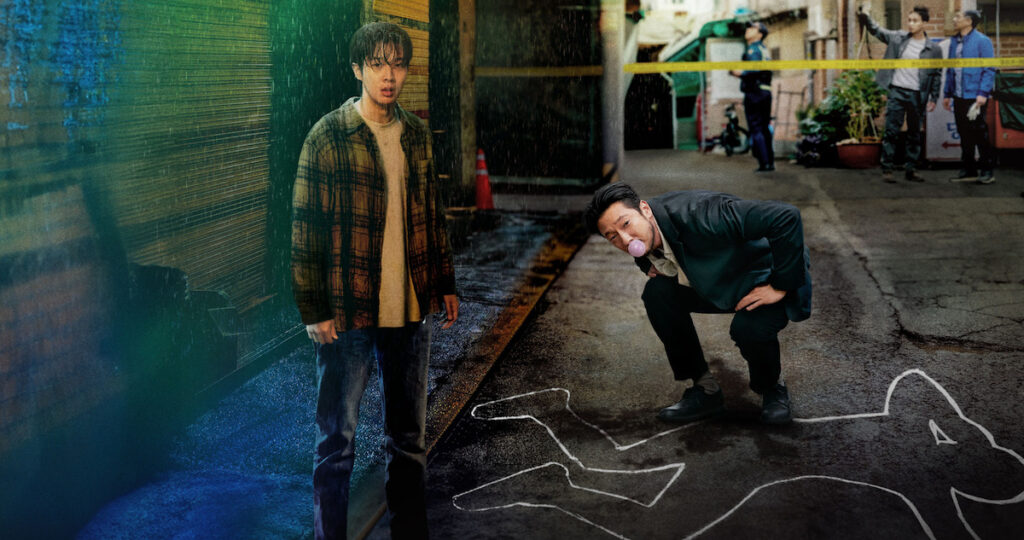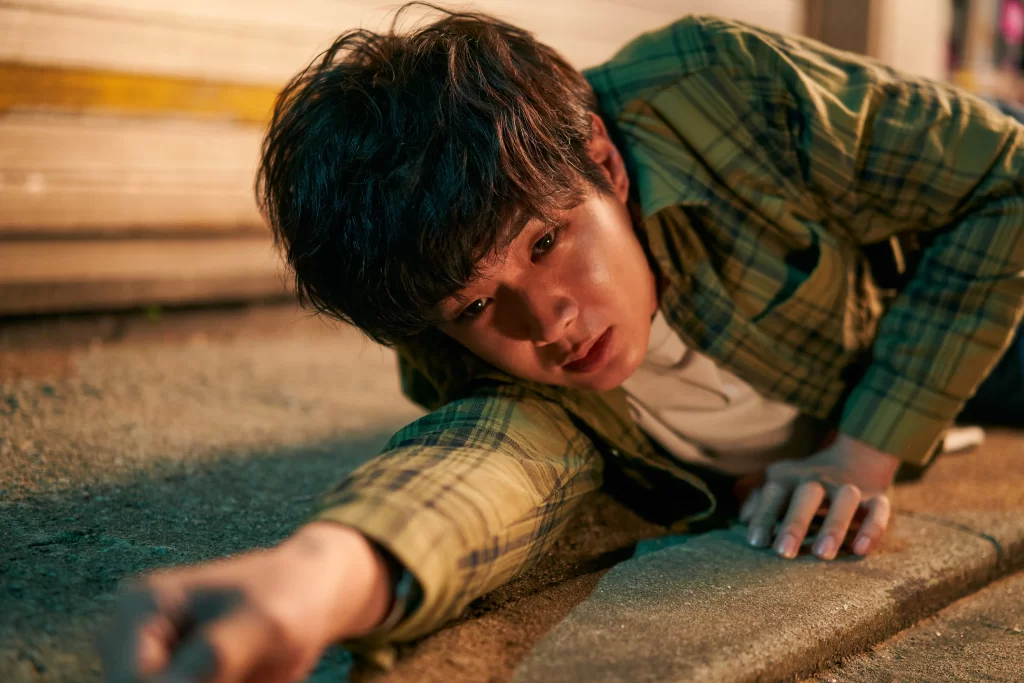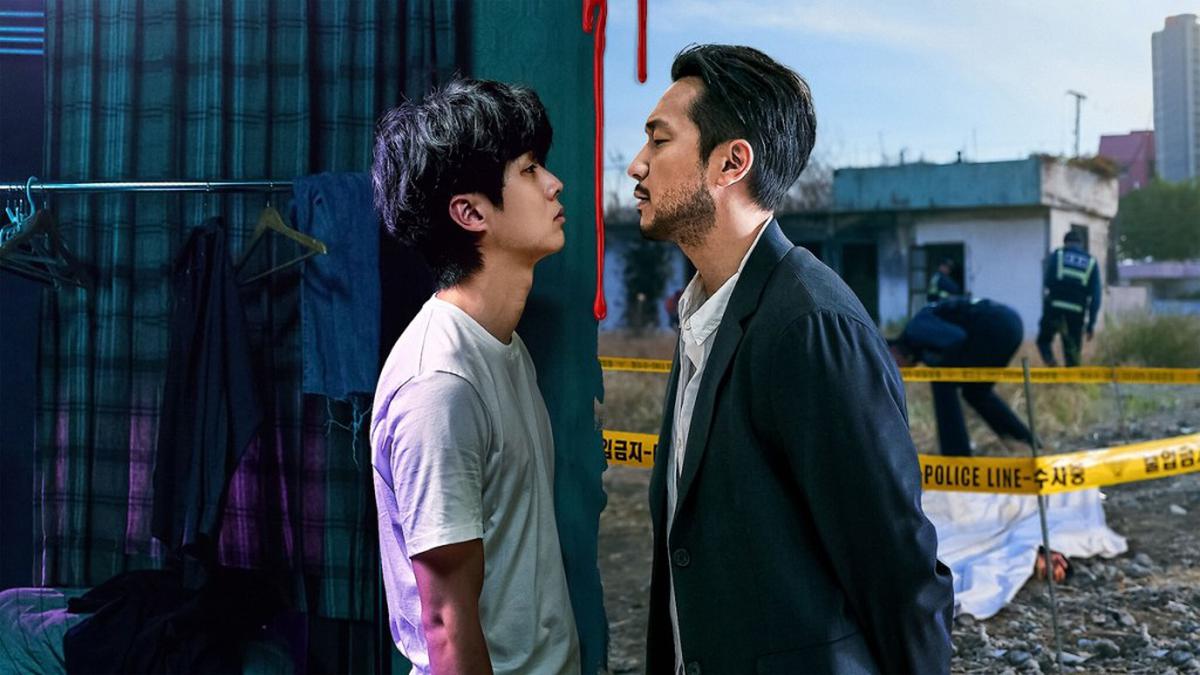Netflix has no shortage of crime dramas, but there’s especially an oversupply of serial killer shows. Against this backdrop, “A Killer Paradox” has become a big hit for Netflix. So what’s so special about a show where a seemingly regular guy transforms into a serial killer with a dash of vigilantism and a tenacious cop is relentlessly pursued? Read on to find out.
The drama begins with Lee Tang (Choi Woo-shik), a disenchanted youth recently discharged from mandatory military service. His mundane existence consists of living in a small flat and working part-time at a convenience store while he dreams of attending the Canadian Rockies. It is something that many can relate to, a slump after graduation when the world seems full of opportunity yet so restrictive at the same time. But this isn’t a show about taking a journey to find meaning in life. It’s about finding yourself when things take place in the most unraveling way.
The chaos starts on the day when Tang finds a customer he served earlier, who is heavily drunk and he starts to have a go at Tang over a trivial matter. This triggers a reaction from Tang, who ends up murdering the man, with a hammer he got from the convenience store to hang a picture of the Canadian Rockies.Add to the twist, the dead man himself turned out to be a serial killer!
It’s first implied that Tang probably just snapped and committed a murder. However, the story takes a vigilant turn here, suggesting strongly that Tang has an ‘ability’ with which he can sense if a criminal is in his sight and the subsequent killings that follow further establish this idea. During the show, Tang gets an ally who helps him develop his vigilante persona.

Kim Yo Han portrays Roh Bin as an ally to Tang, who operates from the shadows and is one of the characters to watch out for. At first glance, he comes off as a superhero-obsessed geek, but his meticulous planning and impressive attention to details make him the perfect sidekick to Tang. But it’s a more twisted version of Alfred, or Robin, as he has changed his name legally to Roh Bin as a tribute to the character Tang’s Batman.
But there’s no respite for Tang, as Detective Jang Nan-gam (Son Suk-ku) begins his pursuit of solving the mystery. Jang is determined to catch the killer, even if he has to bend the law or outright break it. The narrative of the show excels here, utilizing multiple timelines and details that are presented as throwaway but later develop as necessary pieces of a larger puzzle that’s both as surprising as satisfying.
Tang’s descent into a vigilant killer takes us to a world where morality sheds its black-and-white colors and deeply submerges in shades of gray.
The show paints a macabre picture with its unsettling dark humor that also ends up endearing at times, depending on the viewer’s point of view.
Choi Woo-shik delivers a chilling yet relatable portrayal of Tang, who goes through several layers of vulnerability to emerge as a visceral killer. Son Suk-ku’s Nan-gam, on the other hand, brings an intense focus to realism against the backdrop of the show’s more outlandish elements. His relentless pursuit gives us a counterbalance to Tang’s chaos.

The cinematography of “A Killer Paradox” is visually striking, effortlessly switching between the dreamy landscapes of Tang’s inner monologues and the blood-soaked reality. The camera deliberately creates artistic visuals so that the internal struggles of the characters can be differentiated from the blood-thirsty rampage taking place in reality.
The biggest strength of A Killer Paradox is that it makes us think it’s going to be another run-off-the-mill serial killer story, but then takes a u-turn and presents to us a vigilante story with a recurring theme, doing horrible things like murder justified if it’s done to equally awful people? This conflicting theme overlaps with other themes of vengeance and punishment, giving viewers something to ponder as they see Tang’s rampage.
Disillusionment of Tang’s with everyone is also one of the key themes that played out in the show. It seemed he was just going on with life, doing the bare minimum, while everyone around him approached life with everything they got. Whether from his parents or society, Tang’s descent into a recluse was portrayed earnestly. His dreams of going to the Canadian Rockies signified how a break from reality is all he hoped for, and in a twist of fate, his reality did change, but in a way he didn’t think of.
Netflix’s fine run of form continues with another hit like A Killer Paradox. The show is based on the webtoon of the same name, and from where things stand, viewers may be in for a second season, too, to see the anti-hero journey of Tang.







